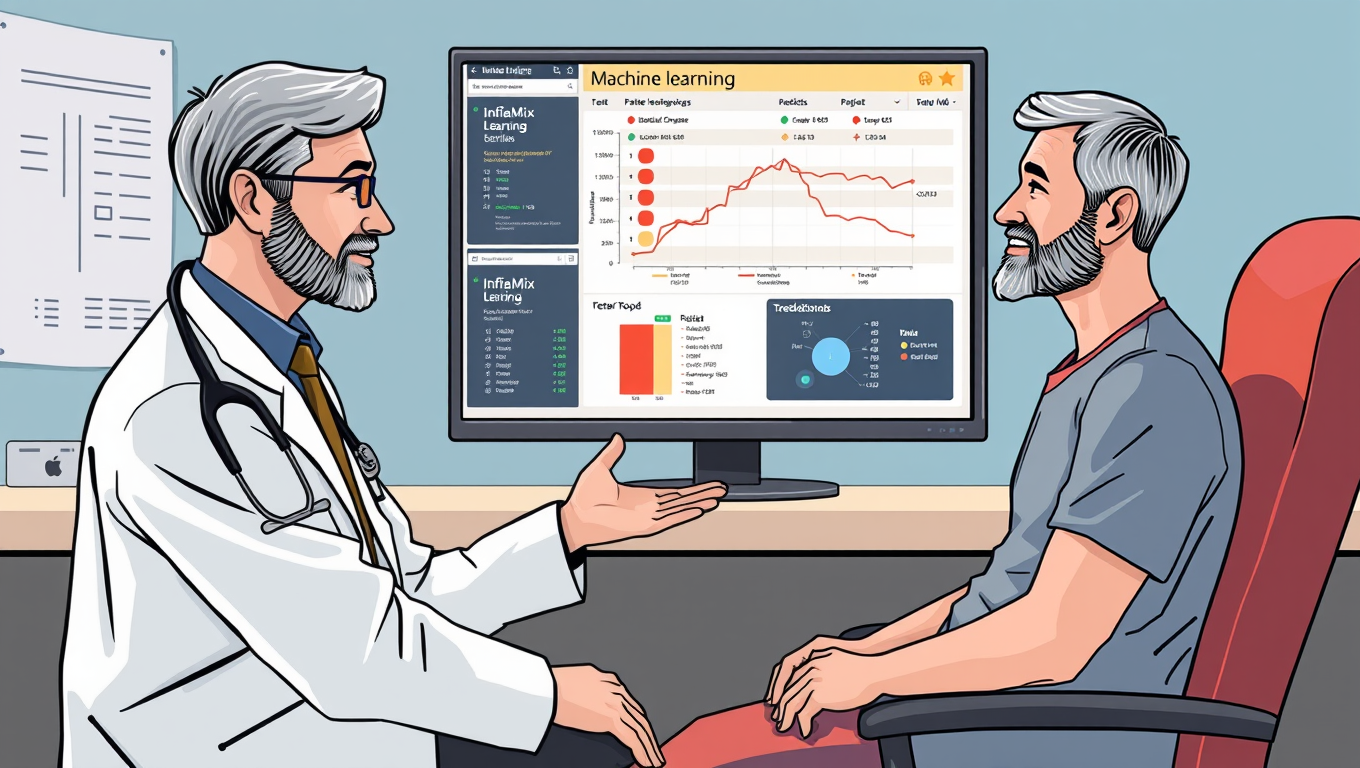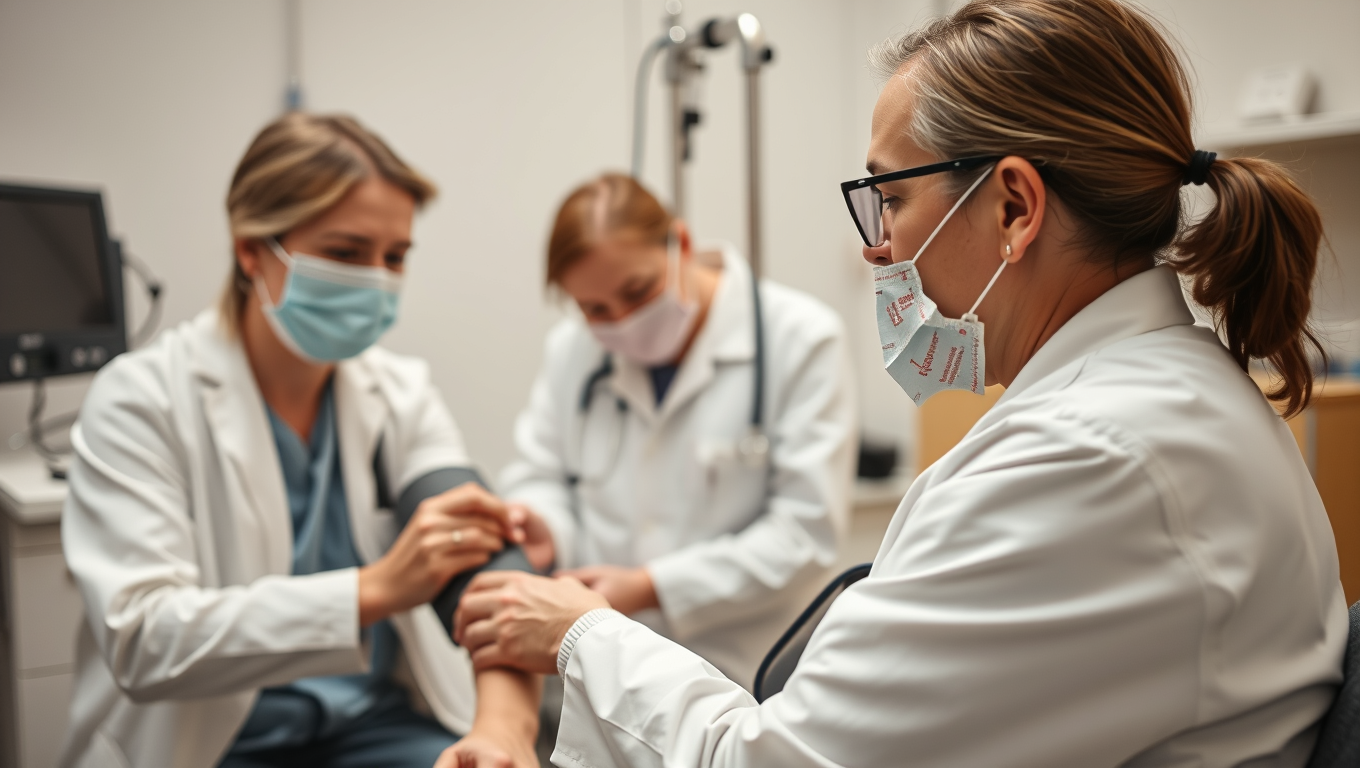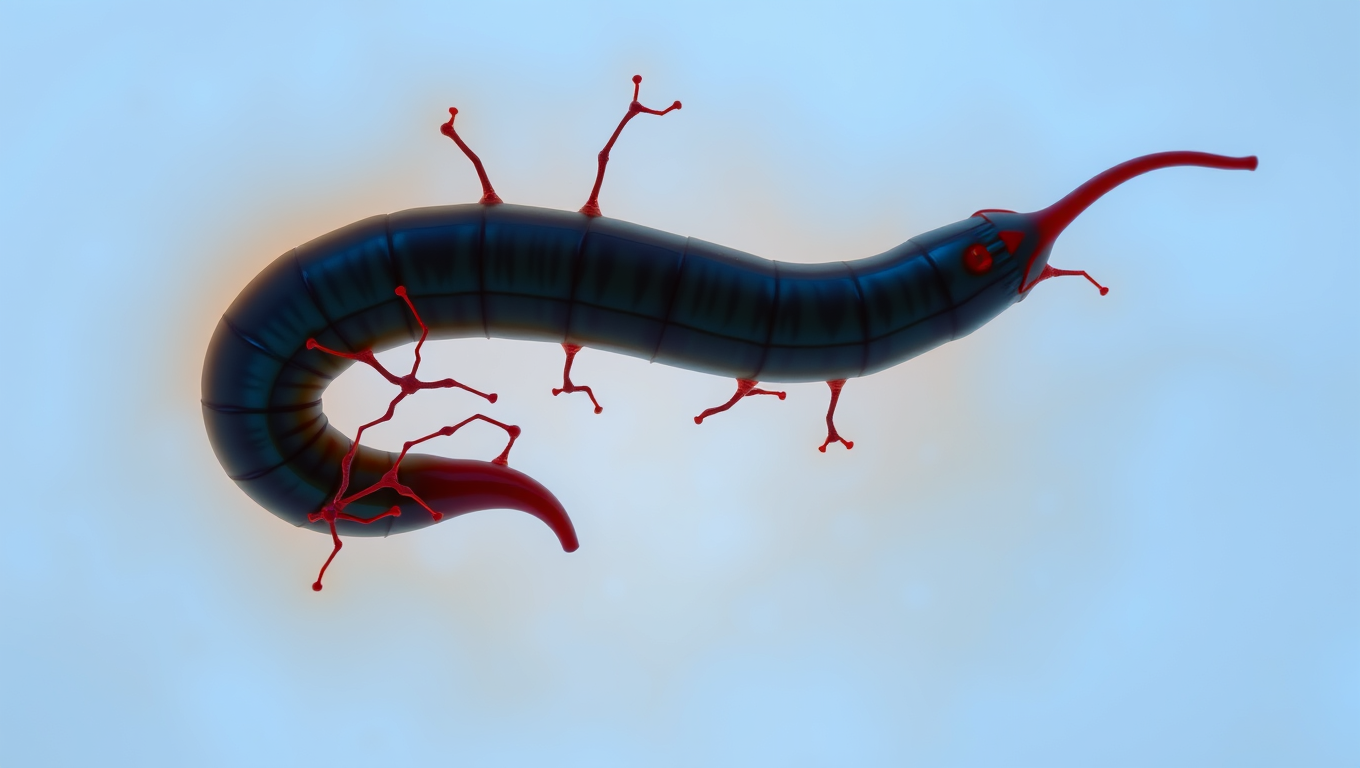While we try to keep things accurate, this content is part of an ongoing experiment and may not always be reliable.
Please double-check important details — we’re not responsible for how the information is used.
Diseases and Conditions
A Breakthrough Test for Lymphoma Patients: Predicting CAR T Cell Therapy Response with Machine Learning
A new article outlines a new tool that measures blood inflammation as a marker for poor CAR T therapy outcomes.

Birth Control
A Safer, Cheaper Vision Correction Method May Be on the Horizon
Scientists are developing a surgery-free alternative to LASIK that reshapes the cornea using electricity instead of lasers. In rabbit tests, the method corrected vision in minutes without incisions.
Children's Health
Uncovering the Inaccuracy: Why Common Blood Pressure Readings May Miss 30% of Hypertension Cases
Cambridge scientists have cracked the mystery of why cuff-based blood pressure monitors often give inaccurate readings, missing up to 30% of high blood pressure cases. By building a physical model that replicates real artery behavior, they discovered that low pressure below the cuff delays artery reopening, leading to underestimated systolic readings. Their work suggests that simple tweaks, like raising the arm before testing, could dramatically improve accuracy without the need for expensive new devices.
Allergy
“The Silent Invader: How a Parasitic Worm Evades Detection and What it Can Teach Us About Pain Relief”
Scientists have discovered a parasite that can sneak into your skin without you feeling a thing. The worm, Schistosoma mansoni, has evolved a way to switch off the body’s pain and itch signals, letting it invade undetected. By blocking certain nerve pathways, it avoids triggering the immune system’s alarms. This stealth tactic not only helps the worm survive, but could inspire new kinds of pain treatments and even preventative creams to protect people from infection.
-

 Detectors9 months ago
Detectors9 months agoA New Horizon for Vision: How Gold Nanoparticles May Restore People’s Sight
-

 Earth & Climate10 months ago
Earth & Climate10 months agoRetiring Abroad Can Be Lonely Business
-

 Cancer10 months ago
Cancer10 months agoRevolutionizing Quantum Communication: Direct Connections Between Multiple Processors
-

 Albert Einstein11 months ago
Albert Einstein11 months agoHarnessing Water Waves: A Breakthrough in Controlling Floating Objects
-

 Chemistry10 months ago
Chemistry10 months ago“Unveiling Hidden Patterns: A New Twist on Interference Phenomena”
-

 Earth & Climate10 months ago
Earth & Climate10 months agoHousehold Electricity Three Times More Expensive Than Upcoming ‘Eco-Friendly’ Aviation E-Fuels, Study Reveals
-

 Diseases and Conditions11 months ago
Diseases and Conditions11 months agoReducing Falls Among Elderly Women with Polypharmacy through Exercise Intervention
-

 Agriculture and Food10 months ago
Agriculture and Food10 months ago“A Sustainable Solution: Researchers Create Hybrid Cheese with 25% Pea Protein”





























